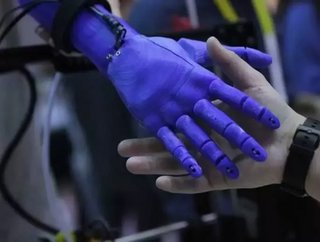Top 5 Digital Health Trend Takeaways from CES 2015

The year 2014 was big for digital health. Funding in the first three quarters surpassed $5 billion, according to Mashable, which is close to double of what was invested in all of 2013. And that trend is expected to continue with digital health soon moving into the mainstream.
The International CES is the world’s largest annual consumer technology trade show, and this year a few leaders in the field of digital health sat down for a panel discussion at the CES Digital Health Summit on Wednesday, Jan. 6.
From wearables to genomics, Dr. Daniel Kraft of Singularity University and Exponential Medicine, Tim Moore of Rochester Optical, and Robert Scoble of Rackspace Hosting joined John Nosta, president of NostaLab, to share their insight on the current and upcoming digital health technologies that mean the most to medicine and health care.
Here are the top five takeaways.
[READ MORE] Google is a Health Tech Enterprise: 7 Ventures to Watch Entering 2015
1. Telemedicine continues on the upward trend.
We’ve reported before that the number of patients contacting a physician remotely by video is expected to reach more than 16 million in 2015, and the leaders at CES agree that this is a trend that will continue to grow. In addition to eliminating waiting times and frustrated patients, telemedicine will also reduce costs by eliminating unnecessary visits to the emergency room for advice or a prescription. Instead, programs such as Doctor on Demand or MD Live can fulfill these requests.
2. Nanotechnology will play a bigger role in medicine in the coming years.
The speakers believe that nanotechnology’s application to medicine is a natural evolution, and one that will be a game changer for our bodies. The precision and accuracy in helping to design drugs offered by nanotechnology or the capability to trace small cancerous tumors are feats that we will see achieved in the next few years.
[READ MORE] 20 Technologies Expected to Revolutionize the World of Medicine
3. 3D printing will be the most impactful trend during the next decade.
From printing medical devices to artificial organs, 3D printing is expected to advance digital health the most in the coming years. The idea of 3D printing in medical education was stressed by the panel as the ability to print models for students to operate on provides a safe and practical opportunity.
4. Artificial intelligence can provide limitless possibilities but needs monitoring.
While artificial intelligence was rated highly by the panel, it was also regarded as “frightening” – simply because of the unknown. Artificial intelligence can do practically anything, including helping a physician track a patient’s health to catch dangerous signs before a heart attack or stroke takes place.
“Blend data with artificial intelligence, and you can have Google Now and GPD predictalytics for your healthcare,” stated Kraft.
5. Visualizations combined with wearables will bring digital health into a new era.
Visualizations (virtual reality, models, etc.) can turn wearable data into something that is easy to understand. Currently, one of the challenges that wearables are facing is that consumers don’t always know what to do with certain numbers, such as blood pressure results. With visualizations, we can see what’s happening in and to our bodies, bringing digital health into a consumer-centric era.
Follow us on Twitter (@HealthcareGlbl) and like us on Facebook!






